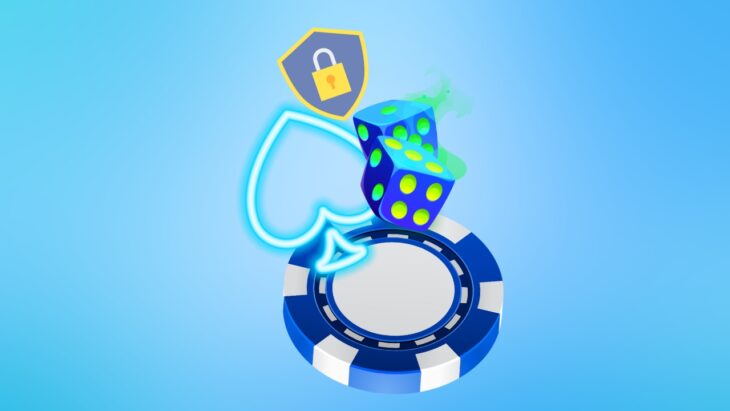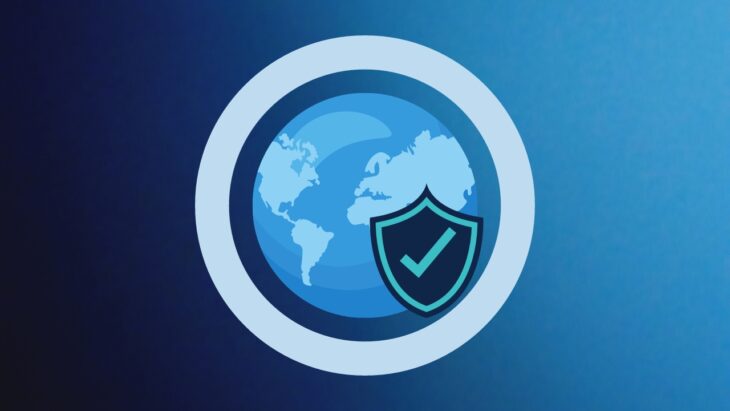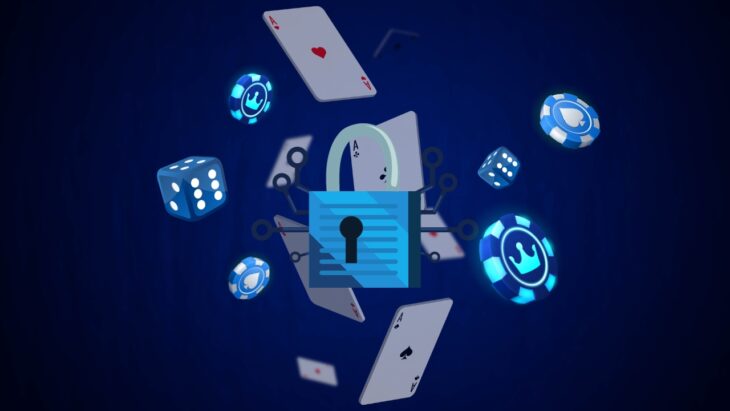The world of casinos is not just about the glitz and glamour, the spinning roulette wheels, or the shuffling of cards. Behind the scenes, a critical element that ensures the smooth operation and integrity of casino activities is the robust field of cybersecurity.
Today, we will take a look at the advanced technological landscape within casinos, focusing on the pivotal role of cybersecurity measures in protecting both the house and its patrons.
Table of Contents
ToggleThe Evolution of Casino Technology

From Traditional to Technological
The transformation of casinos from traditional gambling houses to technology-driven establishments has been remarkable. Initially, security measures were focused on physical surveillance and the protection of tangible assets.
However, with the introduction of digital platforms, online transactions, and sophisticated gaming software, the need for advanced cybersecurity has become paramount.
Technological Integration in Modern Casinos
Modern casinos are a blend of sophisticated software and hardware. Slot machines, for instance, have transitioned from simple mechanical devices to complex computer systems.
Similarly, the use of digital chips, RFID tags, and networked gaming creates a web of interconnected technologies that demand robust cybersecurity protocols.
Challenges in the Digital Arena
The digital transformation has introduced unique challenges. Cyberattacks, such as hacking, data breaches, and fraudulent activities, have become more prevalent. Protecting the digital assets and personal information of customers has thus become a critical task for casinos.
Trust and Reputation
To avoid getting hacked, it is essential to pick a reputable casino. For those interested in exploring the wide range of casino bonuses and offers, casinobonusca.com stands as a trusted source, offering detailed insights and reviews on numerous casino bonuses in Canada, reflecting their commitment to accuracy and customer satisfaction.
Cybersecurity Measures in Casinos

State-of-the-Art Security Systems
To combat cyber threats, casinos employ advanced security systems. These include firewalls, intrusion detection systems, and encrypted data transmissions.
Regular security audits and compliance with international standards, like ISO 27001, are also part of their cybersecurity strategies.
Employee Training and Vigilance
Human error often being a weak link, casinos invest heavily in training their staff. Regular workshops on cybersecurity awareness, phishing attack simulations, and best practices in digital security are commonplace.
Collaboration with Law Enforcement and Cybersecurity Experts
Casinos frequently collaborate with law enforcement agencies and cybersecurity experts.
This collaboration ensures they stay updated with the latest threats and mitigation strategies, and can respond promptly and effectively in case of a security breach.
The Future of Cybersecurity

Emerging Technologies and Threats
As technology evolves, so do the threats. Casinos must continuously adapt their cybersecurity measures to counteract these evolving threats.
This includes staying abreast of technological advancements such as AI and machine learning, which can both pose new risks and offer innovative solutions for cybersecurity.
Balancing Innovation with Security
While integrating cutting-edge technologies can enhance customer experience and operational efficiency, it also raises new security concerns. Casinos must find a balance between adopting innovative technologies and maintaining stringent security measures.
Global Standards and Regulations
With the internationalization of the casino industry, adhering to global cybersecurity standards and regulations is crucial. This involves not only complying with local laws but also aligning with international best practices to ensure a secure and trustworthy environment for customers worldwide.
Cybersecurity Technologies in Use Today
Encryption and Data Protection
- The Role of Encryption: Encryption is the cornerstone of data protection. It ensures that data transmitted between the casino’s servers and the user’s device is unreadable to unauthorized parties. This includes personal information, transaction details, and gaming data.
- Advanced Encryption Techniques: Modern casinos employ sophisticated encryption algorithms, such as AES (Advanced Encryption Standard) and RSA (Rivest–Shamir–Adleman). These algorithms are designed to protect data even against the most advanced decryption techniques.
- Compliance with Data Protection Laws: Casinos must comply with various data protection laws like the GDPR (General Data Protection Regulation) in Europe and CCPA (California Consumer Privacy Act) in the US. These regulations mandate stringent measures for data handling and grant rights to individuals regarding their personal data.
Network Security and Access Control
Securing the Network Perimeter
Casinos use firewalls and intrusion detection/prevention systems to secure their network perimeters. These tools monitor and control incoming and outgoing network traffic based on predetermined security rules.
Access Control Mechanisms
Access to sensitive data and systems within a casino is strictly controlled. Techniques such as multi-factor authentication, role-based access control, and biometric verification are employed to ensure that only authorized personnel can access critical systems.
Regular Security Audits and Penetration Testing
Regular audits and penetration tests are conducted to identify and address vulnerabilities. These practices help casinos stay a step ahead of potential attackers by proactively finding and fixing security loopholes.
Monitoring and Incident Response

Continuous Monitoring and Analytics
Casinos employ continuous monitoring systems that use analytics and AI to detect unusual activities or potential threats. These systems can identify patterns indicative of a cyberattack, such as unusual login attempts or spikes in data traffic.
Incident Response Teams
In case of a security breach, rapid response is crucial. Casinos have dedicated incident response teams trained to handle cyberattacks. These teams work to contain the breach, assess the damage, and restore systems to normal operation as quickly as possible.
Ongoing Training and Awareness
Continuous education and awareness programs for staff are vital. These programs keep the personnel updated on the latest cyber threats and preventive measures, ensuring that human error is minimized in the cybersecurity equation.
The Impact of Cybersecurity on Operations

- Building Customer Confidence: A robust cybersecurity infrastructure is essential in building and maintaining customer trust. Patrons need assurance that their data and money are safe. A strong cybersecurity presence, therefore, becomes a key factor in reputation and success.
- Impact on Brand Image: Cybersecurity breaches can severely damage brand image. In an industry where trust is paramount, any compromise in security can lead to a loss of clientele and revenue. Therefore, investing in cybersecurity is not just about protection but also about preserving the brand’s integrity.
- Regulatory Compliance and Legal Implications: Non-compliance with cybersecurity regulations can lead to hefty fines and legal challenges. Casinos must, therefore, ensure that they are not only protecting their customers and operations but also complying with the law.
Operational Efficiency and Innovation
- Streamlining Operations: Effective cybersecurity measures streamline casino operations by ensuring that digital platforms run smoothly and securely. This leads to better customer service and operational efficiency.
- Facilitating Technological Innovation: A strong cybersecurity framework enables casinos to safely implement new technologies. Whether it’s online gaming platforms, mobile apps, or advanced customer relationship management systems, cybersecurity plays a pivotal role in facilitating innovation.
- Cost Implications and Resource Allocation: While cybersecurity requires significant investment, the cost of a breach can be much higher. Casinos must strategically allocate resources to cybersecurity, balancing between immediate operational costs and long-term protection.
Challenges and Future Directions

- Keeping Pace with Cybercriminals: As cybercriminals become more sophisticated, casinos face the challenge of keeping their cybersecurity measures a step ahead. This requires ongoing investment in technology and human resources.
- Integration of Emerging Technologies: Incorporating emerging technologies like blockchain, IoT, and AI into cybersecurity strategies presents both opportunities and challenges. Casinos must carefully evaluate these technologies for their potential to enhance security while being mindful of the associated risks.
- Globalization and Cross-Border Data Flow: As the casino industry becomes more globalized, managing cross-border data flow and complying with international cybersecurity standards becomes increasingly complex. Casinos must navigate these complexities to ensure seamless and secure international operations.
Final Thoughts
The intersection of technology and gambling has transformed the casino industry, making cybersecurity an indispensable part of its ecosystem. From protecting sensitive customer data to ensuring the integrity of gaming operations, the role of cybersecurity in casinos is multi-faceted and constantly evolving.



